Entrepreneurs have a special impact on sustainable development, though it is hard to measure. Global indicators for monitoring countries and world’s progress towards the SDGs are not fit for business purposes.
That is the reason why we offer Impact Barometer to entrepreneurs – a free-of-charge tool for enterprise self-assessment of its contribution to sustainable development. Whereas the aggregated measurement results will give a picture of Polish business impact on the SDGs. The tool is a set of indicators relevant to business specifics with instructions how to calculate them. It was developed under the 17 Goals Campaign with substantive support from Statistics Poland and in cooperation with business and academic experts.
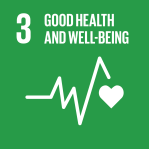
3.1 Average health care expenditure per employee
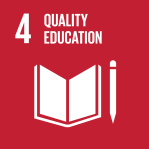
4.1 Average number of training hours per employee
4.2 Number of pupils and students covered by the company's activities supporting the education process in relation to the number of employees
4.3 Percentage of employees trained in sustainable development
4.4 Percentage of employees involved in sustainable development initiatives
4.5 Number of people educated about sustainable development in relation to the number of employees

5.1 Percentage of women in managerial positions
5.2 Women to men remuneration ratio
5.3 Difference in admissions of applicants in recruitment processes of women compared to men
5.4 Percentage of employees trained in countering mobbing, sexual harassment, violence or discrimination
5.5 Difference in use of support programs facilitating care of children, senior parents and other dependents by women compared to men
5.6 Difference in use of parental leave by women compared to men
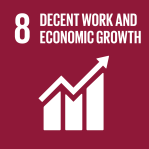
8.1 Value added of the company per employee
8.2 Percentage of employees employed under an employment contract
8.3 Highest to the lowest salary in the company ratio
8.4 Ratio of low-level employees' remuneration to the minimum wage
8.5 Employee turnover
8.6 Percentage of persons with disabilities among employees
8.7 Ratio of number of reported violations of the Code of Ethics to the number of employees
8.8 Percentage of purchases whose suppliers have been verified against CSR criteria
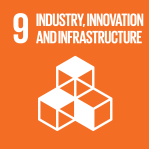
9.1 Expenditure on innovations in relation to revenue
9.2 Percentage of expenditure allocated to sustainable solutions as part of expenditure on innovations
9.3 Number of research projects carried out in cooperation with scientific institutions in the last 3 years
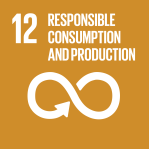
12.1 Material efficiency
12.2 Energy efficiency
12.3 Percentage of energy from renewable sources
12.4 Greenhouse gas emissions
12.5 Water efficiency
12.6 Percentage of recycled or reused waste
12.7 Percentage of raw materials and materials from sustainable sources


